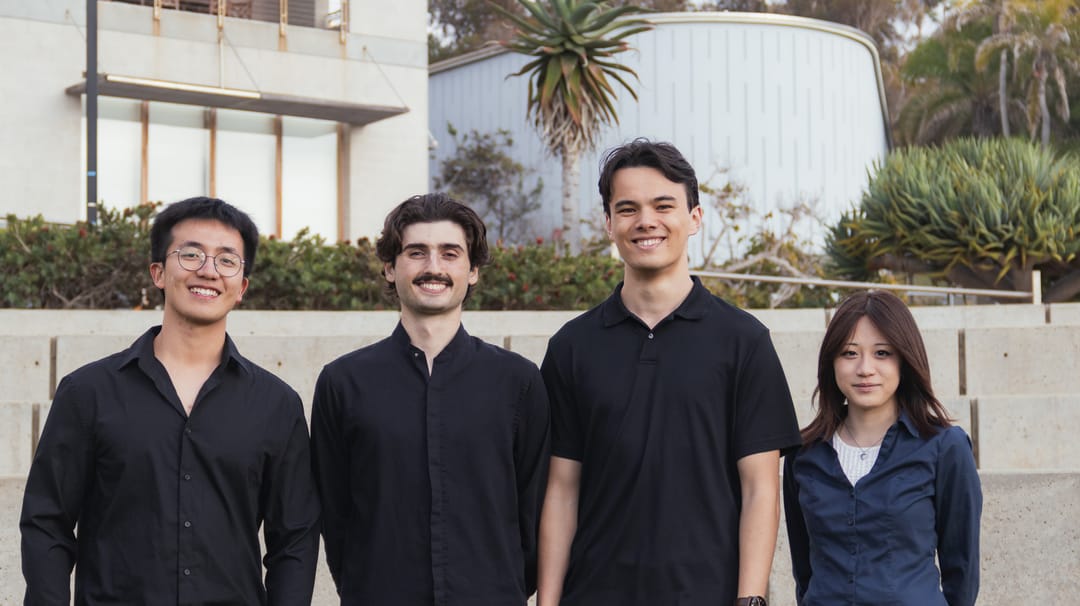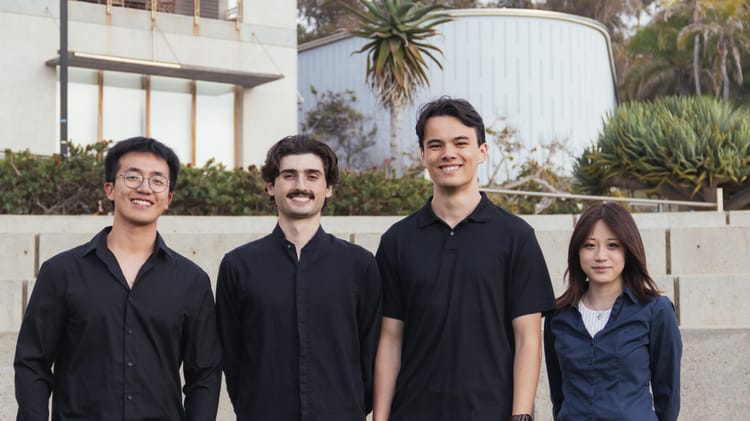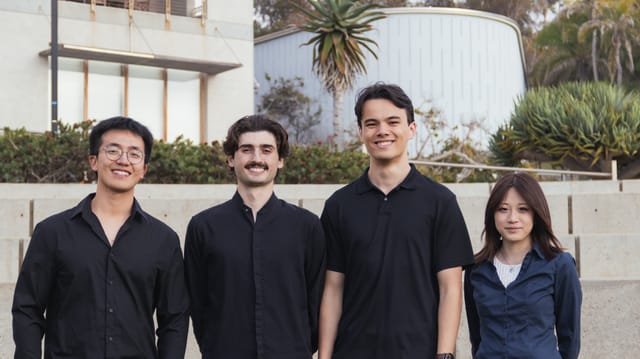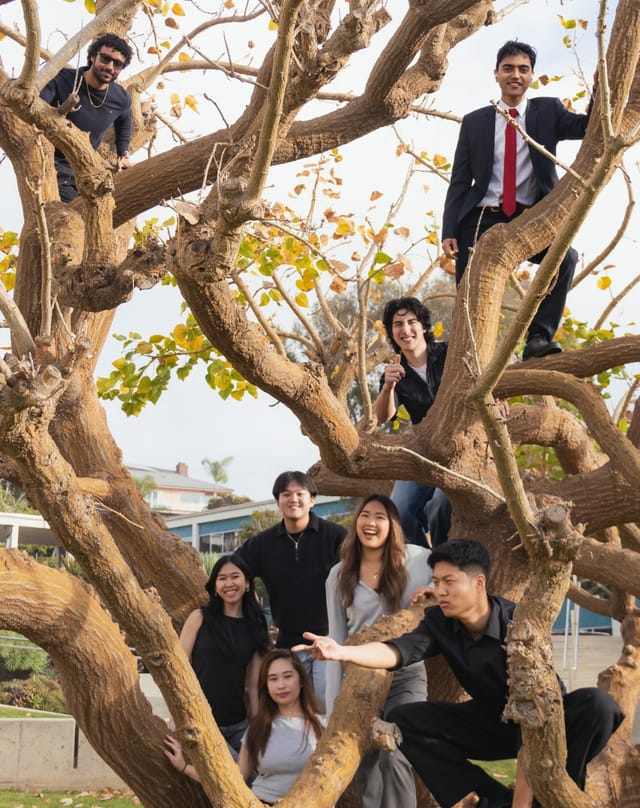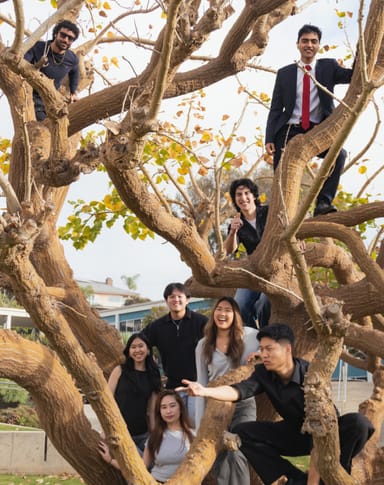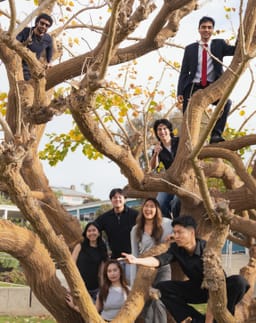Work With Us
Use your skills to craft digital solutions. Together, we can work alongside nonprofit organizations and create a meaningful impact.
Students
Are you passionate about software and social impact? Are you looking to join a unique and close-knit community? Join Us!
Our mission provides a distinct experience to develop technical skills and interact with nonprofit clients all while applying your skills to impact real lives.
Developers
Interested in developing products for social good? Apply to TSE's development team!
Designers
Interested in ideating from user research to high-fidelity screens? Apply to TSE's design team!
We are no longer accepting applications for this school year. If you are interested, please apply in Fall quarter of the next school year.
Our info session slides can be accessed here.
2025 Fall Recruitment Timeline
- Application opens - Week 0 Thursday 9/25 12:01am
- Application closes - Week 2 Sunday 10/12 11:59pm
- Phone screen invitation emails sent - Week 3 Friday 10/17
- Technical interview invitation emails sent - Week 5 Monday 10/27
- Acceptance/rejection emails sent - Week 6 Friday 11/7
Frequently Asked Questions
General
Triton Software Engineering (TSE) is a multidisciplinary student organization at UC San Diego. We partner with nonprofits to design and develop software, websites, and mobile applications pro-bono for social good, while giving our developers practical, real world experience.
If you are passionate about helping others using the skills you learn in college, then TSE is the perfect place for you! We are all about social good, and we hope you share our passion. TSE offers a close network of like-minded students, and we can help you build skills that allow you to advance your career.
TSE recruits new members at the beginning of every Fall quarter. In 2024, we accepted a total of 49 members from 486 applicants.
There are three application stages for both designers and developers. We start with a resume screen, then a behavioral interview (with a few technical questions for aspiring TSE developers), followed by a technical interview. For TEST, we have a resume screen, followed by a combined behavioral and technical interview.
The number of project teams in TSE depends on the number of nonprofits we are able to secure collaborations with every year. We usually have around 6 project teams, along with the TEST team. Each project team consists of an engineering manager, a product manager, 7-8 developers, and 2-3 designers. Teams work independently of one another to create software for the nonprofit organization that they have been assigned to.
Developer
Here is the knowledge we expect for each grade level. Note that your grade level is determined by the year you entered college (e.g. if you started college in 2024, graduate in 2027, and are applying during the fall 2024 recruitment cycle, then you will be evaluated as a freshman). The interview questions might not cover all of these topics, and it might be possible to pass the interviews without knowing all of these topics, but our interview questions are designed with these expectations in mind.
First-years
Approximately CSE 8A or equivalent:
- Familiarity with at least one programming language
- Basic datatypes: booleans, integers, floating-point numbers, strings, arrays/lists
- Control flow structures: if/else statements, for/while loops
- Functions
- Unit testing concepts (no specific frameworks needed) and edge cases
Sophomores/Juniors/Seniors/Transfers
Approximately CSE 12 or equivalent:
- All of the topics for first-years, listed above
- Analyzing time and space complexity
- Recursion
- Data structures: multidimensional arrays/lists, dynamic arrays, stacks, queues, hash tables (also known as hash maps, dictionaries)
- Algorithms: sorting, binary search
In the behavioral interview, expect to do one or more of the following:
- Demonstrate your familiarity with the computer science concepts above
- Describe how you would test a piece of code
- Verbally explain a pseudocode solution to a small programming task
To prep for the technical interview:
- Brush up on a high-level programming language. Due to the nature of the interview tasks, some languages may be more difficult to use than others. Python, Java, or JavaScript is preferred. You will not be able to compile or run your code, so exact syntax/APIs are not that important, but we expect you to demonstrate familiarity with the language you choose.
- Expect to solve one or more programming tasks, which may have multiple parts. Be mindful of edge cases, and discuss your approach with your interviewer before you start writing code.
- You will be evaluated on your communication and problem-solving skills, the readability, maintainability, and correctness of your code, and (for sophomores/juniors/seniors) the algorithmic performance of your code.
We emulate the Agile Workflow to give our developers some insight on industry standards. Developers complete weekly tasks assigned to them by their project manager during their team meetings. The work that you will be doing depends on your client. For most web development work, we tend to stick to the MERN stack, and for most cross-platform mobile development, we focus on using React Native with Expo. This means that, as a whole, TSE ends up with many JavaScript-based applications. However, depending on the client's needs, we may use other technologies, such as TypeScript, Go, and PostgreSQL. Typically, developers spend 4-6 hours a week on TSE activities.
Designer
Be prepared to present a past project you worked on. The presentation will be a total of 25 minutes, with 15 minutes of presentation and 10 minutes of questions. It is recommended to have either slides or some sort of visual component to your presentation.
Be prepared to solve a design challenge. You will be given a prompt similar to an actual TSE project and will have 30 minutes to demonstrate your ability to think through and solve this problem. You should be prepared to both talk through your thought process as well as create some very low fidelity visuals to convey your ideas. We really want to understand what you are thinking the whole time, so please think out loud! If you get stuck at any point, the interviewer(s) will be there to help guide you.
Designers collaborate closely with their non-profit client, carefully listening to the client's needs to create tailored solutions. Using design tools like Figma, they guide projects through the entire design process, including research, ideation, wireframing, prototyping, etc. Along the way, designers hand off their designs to developers, while remaining available to address any feasibility concerns. Projects vary in scope, from website rebranding to internal software tools, providing a dynamic range of challenges. On average, designers dedicate 5-7 hours per week to TSE activities.
TEST
The TSE Early Start Training (TEST) program provides students from underprivileged backgrounds who have absolutely no technical development/design experience with a first step into exploring software engineering or UI/UX design. TEST developers and designers will learn the fundamentals of their domain while working on beginner-level projects. The program lasts for the school year, then after this period TEST members can potentially become TSE developers and designers.
Students who are graduating this school year (i.e. before Fall quarter of next school year) may not apply to the TEST program because the goal of the TEST program is for participants to join TSE as general members the following year and apply what they learned in TEST to contribute to TSE projects!
You may apply to either TSE or the TEST program, not both. If you are unsure about which is right for you, please email tse@ucsd.edu.
The projects TEST developers and designers work on varies year-to-year based on member preferences and TEST Lead input. In the past, we've had both collaborative projects and individual ones. These projects combine all of the skills you learn throughout the year into something you can be proud of and show off.
Yes! We have a process internally to transition TEST members to TSE members. Our goal is to maximize the conversion rate between the two. This is not to say TEST members aren't part of TSE. Everything TSE related applies to both TEST and TSE members, the only difference between the two are the projects that you work on and the additional evaluation TEST members can choose to undergo to become TSE members. This "evaluation" is just to determine whether or not TEST members are equipped to take on the more advanced work associated with TSE projects.
As a TEST member, you will be spending the first portion of the year learning all about your chosen discipline. These lessons will be taught by our TEST Leads who have created customized curriculum to help you on your journey. You'll be collaborating with other TEST members during this entire process. After this first "bootcamp" period, you'll move onto the project portion of the year where you'll create something awesome using all of skills you picked up. Typically, TEST members spend 4-6 hours a week on TSE activities.
Still have questions?
If you still have any questions regarding how to get involved with us, please feel free to contact us at tse@ucsd.edu and we will get in touch with you as soon as possible.
